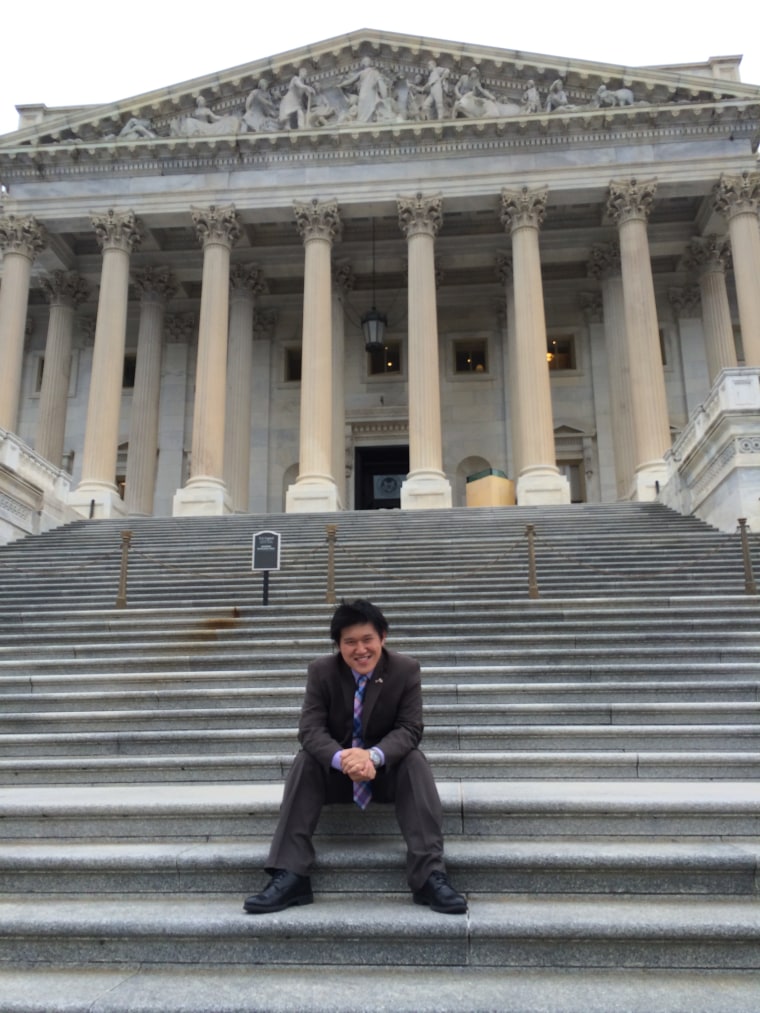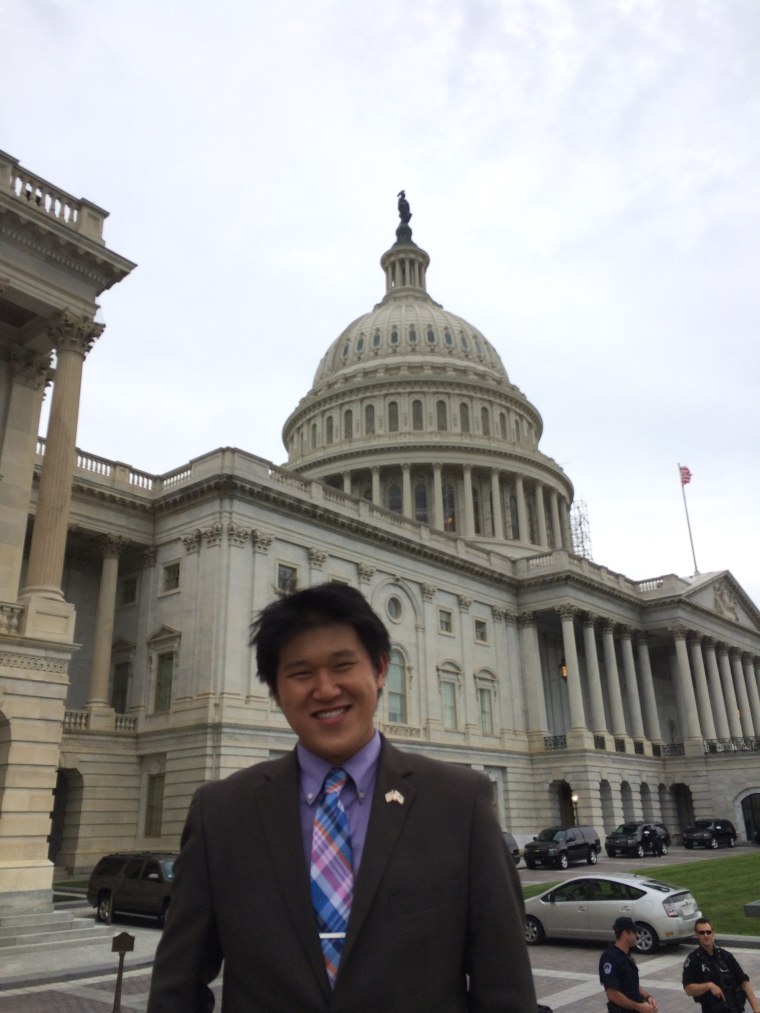I had my first experience in national politics in summer 2014. Walking through the halls of Congress as a bright-eyed intern, I realized how few of the people I saw, from House members to staffers, looked like me.
As an Asian American and Pacific Islander (AAPI) interested in politics, I’ve always felt slightly out-of-place among my AAPI peers. While attending debate competitions and political events, I often realized that I was the only AAPI in sight. Even today, as a student attending a school with a sizable AAPI population, I still find myself occasionally as the sole AAPI in my political science seminars.

These observations reflect a broader trend. While the AAPI population has nearly doubled in the last decade, AAPIs still have the lowest voter registration and turnout rates of any demographic group. In 2012, 68 percent of registered Asian-American voters and 74 percent of registered Pacific Islanders received little to no voter contact by organizations and campaigns about the election. This lack of political presence translates into underrepresentation in politics: 5.6 percent of the U.S. population, over 17 million people, are AAPIs. However, out of 535 voting members in Congress, only 12 are AAPIs — about 2.2 percent.
RELATED: Report: Only 14 Percent of State Legislators Identify as Minorities
This underrepresentation has a real implication for the AAPI community when decisions are made. I’m often reminded of this fact, by having gone to school next to what was once a detention center during Japanese American internment. Or by growing up in the state that led the charge for the Chinese Exclusion Act. Or by being the son of refugees who fled a regime in Cambodia that was systematically slaughtering a minority population. Representation in politics is essential for AAPIs to have a voice and to prevent past policies, from exclusion to internment, from happening again.
The question is how? How do we get more AAPIs involved in public service, when the community is one of the least likely to be involved in politics? The answer might be to get them involved in public service early on. I once heard an analogy that stuck with me: that increasing AAPI representation is akin to constructing a “political pipeline.”
To increase the number of AAPIs in politics, it’s necessary to build a “pipeline” of AAPIs involved in government. If AAPIs get exposure to public service early on, then they’re more likely to be involved in local, state, and federal politics. Many elected office holders — including my Congresswoman, Judy Chu — followed this pattern. Before she was ever elected to Congress, she served on a school board, city council, and in the state assembly.
To get more AAPI representation, we need to get AAPIs involved in public service early on. As they get more experience, they’ll run for school boards and city councils, and gradually, the number of AAPIs involved in all levels of government will increase as AAPIs move through the political pipeline to higher office. This early exposure is important in showing AAPIs that they can be involved in politics. When I was a student at a local community college, I never imagined that I could be involved in public service before I stepped through the halls of Congress.
RELATED: New Super PAC Launches, Aims to Increase Asian-American Votes
While many non-profits do important work in exposing young AAPIs to politics, there are only so many opportunities for millennials to be involved in public service. One of the ways millennials, including young AAPIs, have gained public service experience is by joining programs, like AmeriCorps – which has received five times more applications than the spots it has to fill. Programs like AmeriCorps have been found to increase civic engagement and participants end up more likely to choose public service careers.
Hillary Clinton understands the political pipeline. She knows that to get more millennials, including young AAPIs, involved in politics, we have to create opportunities, like AmeriCorps, for them to be exposed to public service. That’s why she’s proposed a National Service Reserve to meet the need for more public service opportunities. The Reserve will enlist five million Americans to serve their communities, from restoring local parks to responding to natural disasters. It’ll create more opportunities for young AAPIs to be involved in service. Like AmeriCorps, it’ll lead participants to choose public service careers. Many young AAPIs worry about paying college tuition and debt. Under Hillary’s proposal, national service will also help participants pay for college, repay student debt, and build skills that are attractive to employers.
Getting more AAPIs up the political pipeline will take more than one program. However, for AAPIs to get early exposure to public service, the opportunities for national service have to exist. Hillary Clinton’s National Service Reserve will create five million more opportunities for young AAPIs to become involved in public service. If even a fraction of these five million people are AAPIs who choose to continue up the political pipeline, then in a few decades — if I walk through the halls of Congress, I definitely won’t be the only AAPI around.
Ryan Liu is the National Chair of AAPI Millennials for Hillary and a member of the Hillary for America Millennial Victory Council. He’s from Los Angeles, California, and attends Yale University.
Follow NBC Asian America on Facebook, Twitter, Instagram, and Tumblr.
